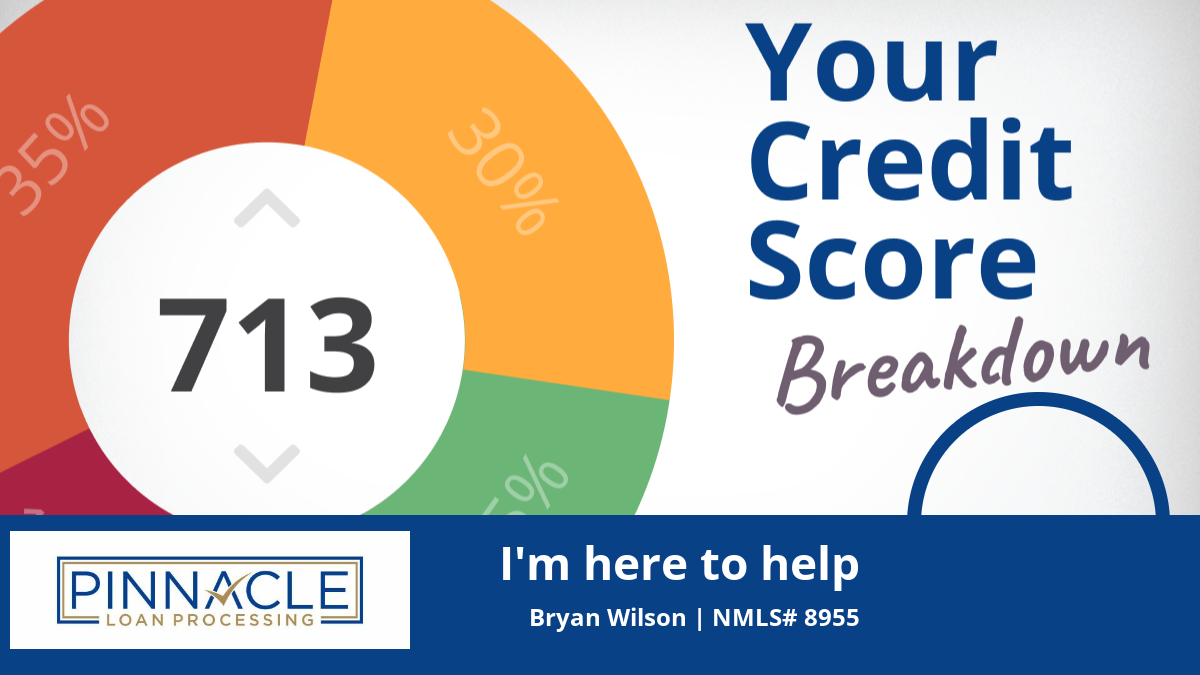What does your credit score mean? Find out.

A credit score is a three-digit number. It represents your credit history and tells the lender the likelihood of you repaying your debt. It includes factors like how long your credit has been open, how much credit you have, and how much of it you use.
Whenever you apply for credit, such as when applying for a home loan, lenders and banks will use this number to decide if they will approve you for a loan. And if you get approved, this number will influence what the terms will be.
How Are Credit Scores Calculated, and Who Does It?
Your credit score is generated by the three main credit bureaus (Equifax, Experian, and TransUnion®) using a credit-scoring model. The most commonly used credit-scoring model is one developed by FICO®. It's based on several factors, like credit usage and available credit, but never on personal information such as race, gender, or ethnicity. Credit scores typically range from 300-850.
What Is A Good Credit Score?
A "good" score varies slightly from lender to lender, but one thing remains the same --the higher your credit score, the better. A higher credit score tells lenders that you are low risk for defaulting on your loan, making it more likely that you get offered more credit and better loan terms.
Most lenders consider credit scores over 670 to be good. A credit score above 740 is very good, and any score of 800+ is exceptional.
✅ Benefits of Contract Loan Processing for VA Loans
-
Specialized VA Knowledge
-
VA loans have unique requirements (COE, residual income, funding fee calculations, appraisal requirements).
-
A contract processor experienced in VA loans can spot potential issues early and streamline the process.
-
-
Cost Savings for Lenders
-
No need to hire full-time staff; processors are paid per file.
-
Helps smaller brokerages or lenders manage fluctuating loan volumes without carrying extra payroll.
-
-
Faster Turn Times
-
Contract processors often work remotely and are paid per closed file, so they’re incentivized to move loans quickly.
-
They can push COE requests, follow up on VA appraisals, and ensure VA-specific forms (26-1880, 26-8923) are completed on time.
-
-
Compliance & Accuracy
-
VA has strict guidelines (e.g., allowable fees, seller concessions, and veteran protections).
-
A skilled processor reduces risk of compliance errors that could lead to loan buybacks or funding delays.
-
-
Scalability
-
During high volume seasons (e.g., rate drops, PCS military moves), lenders can bring on extra processors quickly without long-term HR commitments.
-
-
Reduced Loan Officer Burden
-
Lets LOs focus on originating, networking, and serving clients while the processor handles gathering DD-214s, income docs, pest inspection reports (if required), and underwriting conditions.
-
-
Improved Borrower Experience
-
Veterans and active-duty borrowers often value clear communication and speed.
-
A processor who knows the VA process can anticipate documentation needs and prevent last-minute surprises.
-
👉 In short: Contract processors help lenders stay lean, compliant, and efficient, while ensuring veterans have a smoother experience.
Get Your
FREE eBOOK
